Reading Recommendations: My Best Books from 2015
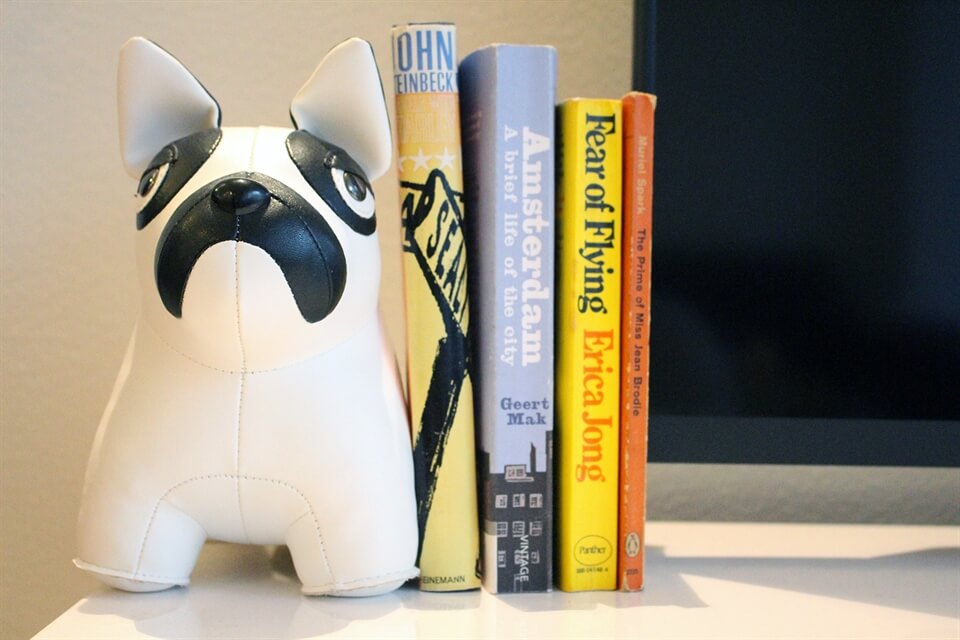
I wanted to read 100 books in 2015. I ended up reading 56.
I also wanted to lose all my baby weight in a few weeks in 2015. I ended up holding on to most of it until my baby turned 3 months.
And there was a time in July 2015, approximately ten minutes before Baby Bird landed in this world where I wanted to take my breaking-open body, disappear into a hole, fall asleep and never, ever return to reality.
Such is life. I'm not bitter about any of the above facts. I'm just happy that I read the books I did. Oh and that I didn't go find that hole and instead pushed through and had the beautiful baby. (And that I'm now rocking all of my pre-baby jeans like that huge stomach never ever happened - boom!)
It's fair to say thanks to those 56 books I enjoyed some really different, exciting, inspiring and new experiences, as a reader, writer and human being. Some of the books I read left me breathless or speechless. Some left me feeling clueless or fearless. Others just left me bored senseless.
As always, I (try to!) keep my Goodreads profile up to date with the books I'm reading. If you're a regular there then please let me know so we can be friends.
So without further ado, here are my favourite reads of the year and the reasons why. Consider this a reading list in which I think anyone and everyone will find something to enjoy. And of course, please list your books of 2015 in the comments - I need me more book recommendations!
Most comforting (fiction): The Moons of Jupiter by Alice Munro
A year nearly passed without me reading a collection of Alice Munro's stories but thankfully I saw the light in November and walked towards it with my arms open. There is no other short story, or heck, fiction author who I trust more to make a story soothe me more. Here's my original review:
"(Reading) The Moons of Jupiter was like putting on a warm woollen sweater. I just love Alice Munro.
One of her older (to me!) collections of fiction - published in 1978 - these stories made me feel like I was escaping the brutal realities of Being Mortal (and the equally brutal possibilities of Fahrenheit 451) and looking into the quiet lives of unsuspecting people, mostly living their lives in Ontario. That's not to say there weren't twists and turns, or themes that shocked or moved me, because there was, but the stories didn't demand much of me other than I relax, read and let the characters reveal themselves softly, softly. That is why I love Alice Munro. That is why I could and should read a collection of her fiction every month for the rest of my life and feel enriched by it."
Most comforting (non-fiction): Tiny Beautiful Things by Cheryl Strayed
I should read this again. In fact, I'm surprised I haven't already considering the ups and downs of the last few months. So convinced am I by this book's healing powers that I should probably stop writing this post and go and read it for an hour instead. And if you also feel you need a little bit of a hug in the form of words, you should stop reading this and download it immediately. You're welcome. Here's what I had to say in January:
"A compilation of letters written to a one-time anonymous agony aunt in a literary publication The Rumpus (you can find the original column here) the responses were composed by Cheryl Strayed. They are incredibly well thought out. They are violently insightful. They are moving in a way that literally moves you. As in physically and emotionally. One reply to a letter moved me to put my book down and take a deep breath, and another made me close my eyes and count to ten because it was as if Cheryl's words were written to me. I picked the ebook version of Tiny Beautiful Things up for just £1.00 but I've already ordered it in paperback. That, my friends, is the sign of a book you love."
Most interesting (non-fiction): Amsterdam by Geert Mak
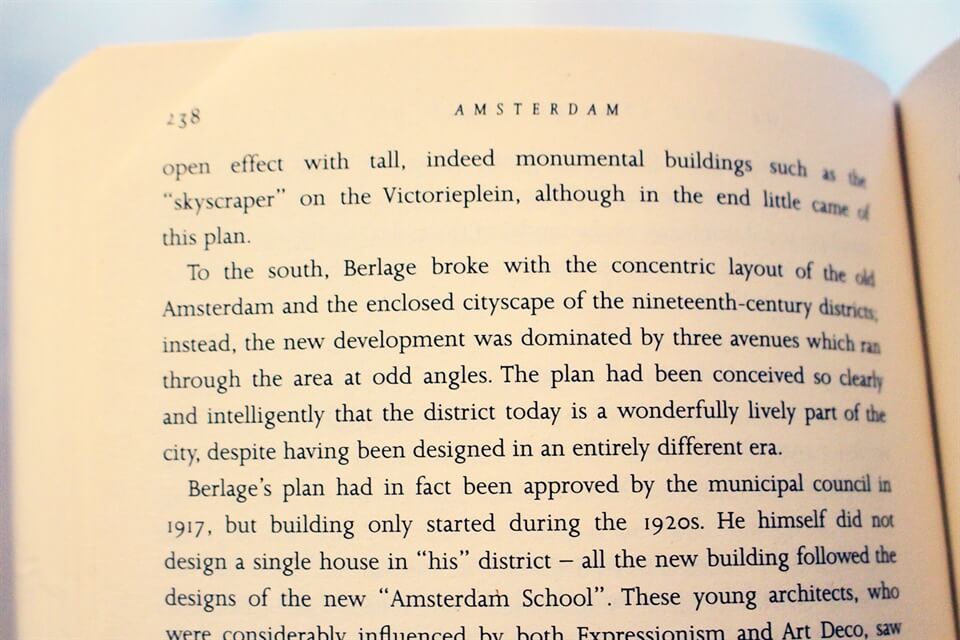
I don't expect everyone to be as fascinated by this book as I was - it is about my home city after all - but I think it's worthy of inclusion as many people stumble upon this blog because they're looking for Amsterdam related content, so here's another little slice. It was also a rewarding book to read. I now walk around my city feeling a little bit more enlightened and educated. Here's the full review, again from May:
"This book was also probably a bit to blame for slowing me down this month as it was a heavy piece of non-fiction documenting the "brief history" of the city of Amsterdam. I'd been meaning to read it for a while and I wasn't disappointed in terms of how much I learned (TONS!) and how much I enjoyed learning about my home city (TONS & TONS). Of course, it's not a book for everyone and it probably isn't even for somebody who enjoys visiting Amsterdam a lot as I think you need a more long-term interest in what made this city what it is now and it helps if your intrigue has more than one purpose, which mine does as I'm planning a collection of short stories about Amsterdam. While it says "brief history" parts of the book felt dense with detail and other parts felt rushed over, especially the more modern periods of history, and my only other complaint would be that written in 1995 it felt a little dated when it came to "current day" observations of Amsterdam. I would definitely like to read an updated version."
Most interesting (fiction): The Miniaturist by Jesse Burton
Another book you should read if you're remotely interested in Amsterdam, I think my feelings towards this novel have grown fonder since I read it. It's funny how that can happen. I've found myself recommending it to many a friend and becoming keen to discuss it with them after. I also kept meaning to go back to the Rijksmuseum to see the original doll house that inspired the story, but I haven't as yet. Re-reading the review below, from January, and rekindling these warm feelings for the novel is making me renew my intention:
"This was another novel that I started reading, unsure if I would enjoy it enough to see it through. However, I got caught up in it and not just because the setting - 17th century Amsterdam - obviously appealed immediately. The Miniaturist gives new meaning to the term "thoroughly researched" and the story itself - that of a young woman arriving in Amsterdam to join the home of her new husband and his sister, man servant and housekeeper - is a highly original one. While historical fiction is not my usual cup of tea, I do love reading stories set in Amsterdam and while a series of awards and nominations have honoured Burton's debut much more than I can, I do indeed recommend this book if you like a story that is set in a time long gone but with people who you can relate to instantly."
Most amusing: Me Talk Pretty One Day by David Sedaris
Whenever I see the cover for this book, I chuckle to myself. That should perhaps be all I need to say. That and asking myself why I haven't read another of his books since. Here's my review from February:
"The funniest book I've read this year. So far. I've saved this book to give to my mum when I next see her because it contains the kind of chuckle-inducing personal stories about family life with someone from your own family. I read several lines out to NewMan who took them much better than those I read to him from last month's favourite book, Dear Sugar. While the humour is pretty much the same throughout - self-deprecating and at the expense of the author and those closest to him - there's also plenty of sharp observation to be enjoyed and a general celebration of peoples' egos and eccentricities."
Most page-turning: Station Eleven by Emily St John Mandel
I really did not expect to like this book as much as I did. It's essentially a post-apocalyptic dog-eat-dog novel that jumps between a number of narrators whose connections become clearer as the story develops. Not many of them are instantly likeable and there's nothing warm and fuzzy about what's happening to any of them, however, the story and the characters sucked me in and had me clicking the buttons on my Kindle for hours as I lay, heavily pregnant, in the sunshine. (Basically, I was so huge that getting up from where I was lying was impossible so thank goodness this book was super readable.) Here's what I wrote back in June:
"A page-turner that I picked up after reading a few very favourable reviews on Goodreads. Yes, it's post-apocolalyptic and yes, it had a dark, sad side, but it also had a lot of heart and soul. While I can't profess to say that it is different to other books in the genre because I've read very few others, I can't deny that I was curious, I cared and I was invested in many of the characters. I found it very hard to put down as pieces of the puzzle slotted into place. It also taught me a new way I don't want to die; stuck on a disease ridden plane on the tarmac of an airport where they refuse to open the doors. I don't think (and hope) that wasn't a spoiler."
Most inspiring, soothing and wanderlust-inducing: Travels with Charley by John Steinbeck
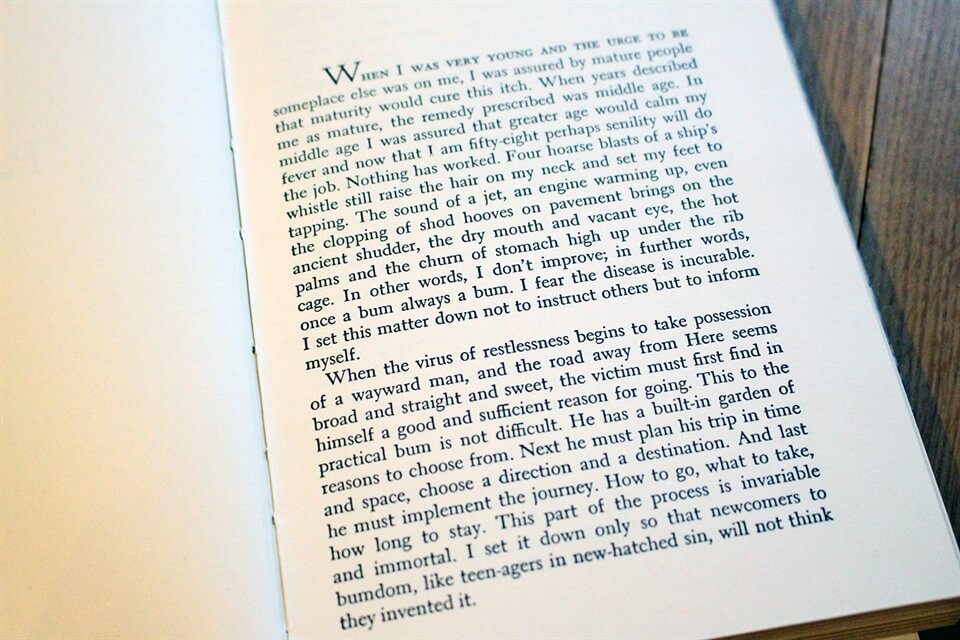
It's hard to say whether my prediction in the review from June below is accurate. I'm not sure it was my favourite of the year, but it was certainly a book I loved reading. I also maintain that anybody and everybody with half an interest in travel should read the introduction and realise that it's some of the most poignant prose ever written about the art of wandering. Lovely, lovely stuff.
"This was it! This was my favourite this month and I think a real contender for my favourite book this year. Steinbeck's memoir of his three-month road trip around the USA is frequently quoted - and rightly so as it contains some wonderful prose - in travel blogs and other travel books, but there's so much more to this book. It's an insight to a country at a very interesting time in its history (and boy, if it wasn't weird to read Steinbeck's open-minded and honest thoughts about racial tensions in the Southern States he visited at the time of the horrific Charleston shooting) though of course his language is littered with terms that we now thankfully never use or feel comfortable reading/hearing. Tender observations poured off the page, heartfelt honesty about life, travel and the nature of people kept me hooked waiting for his next encounter or episode, and of course, there was the deepest friendship you're likely to ever read about between a man and his dog; this book was rich in so many ways and I wish it had been twice as long."
Most intriguing: Passing by Nella Larson
In a year when a white American woman "passed" herself as black, it was somewhat topical to read this book about a once widespread phenomenon when light-skinned black or mixed race women would lead others to believe they were white. Half-African-American, half-Danish Larson's ground-breaking novel about a set of women doing just that in Harlem in the early 1900s is slickly written and historically important. It was also incredibly readable. Here's my review from May.
"I stumbled upon an article about Nella Larsen in early May (which of course I can't find now, but this is a good one to read too) and immediately wanted to read one of her books. The daughter of a Danish (white) mother and a Caribbean (black) father, Larsen was a ground-breaking author and member of literary circles in the early 20th century. Passing is arguably the better known of her two published novels and I really enjoyed and benefited from reading it. Dealing head-on with the topic of "passing", when a non-white person 'passes' themselves off to be white in order to advance or better their circumstances, it not only opened my eyes to this phenomenon but gave me a very real and believable insight into the conflicts and challenges this gave not only to those who chose to pass but to those who we are aware of it. Often applauded for capturing and commenting on a historic phenomenon, Passing is also a good story in its own right with twists, turns and turbulence along the way for both of the main characters, especially the poor Irene who tells most of the story. If you choose to buy any of the books on this list, make it this one. (Also it's currently cheap for Kindle!)"
Most thrilling: Sharp Objects by Gillian Flynn
Scrap Gone Girl. Move aside The Girl on the Train. Get out of the way any book with "Girl" in the title. Read this one. This is the best pyschological thriller I've ever read and I did not want it to end. This review from April should explain why.
"...I read Flynn's debut novel, this month and I was pleasantly surprised. It has many of the things I liked about Gone Girl - mystery, fast-paced twists, quirky "can-I-trust-them?" characters and a very dark side - however unlike Gone Girl it felt more raw, more real and more rounded. It developed with a lot of sophistication, convincing me of things I'd later find out to be wrong, but still allowing me to feel clever enough to crack the mystery at the same time the narrator did. Furthermore, unlike Gone Girl, it concluded in a way that both shocked and satisfied me. My favourite thing about the book, however, was Flynn's writing. It reminded me that first novels are often "freer" than second, third, fourth books. I found her prose unusual but effective, her descriptions quirky but efficient and the way she both built and deconstructed key characters was original and unapologetic. I definitely recommend Sharp Objects if you enjoyed 80% of Gone Girl and now want a fuller, more fulfilling experience."
Most eye-opening: Fear of Flying by Erica Jong
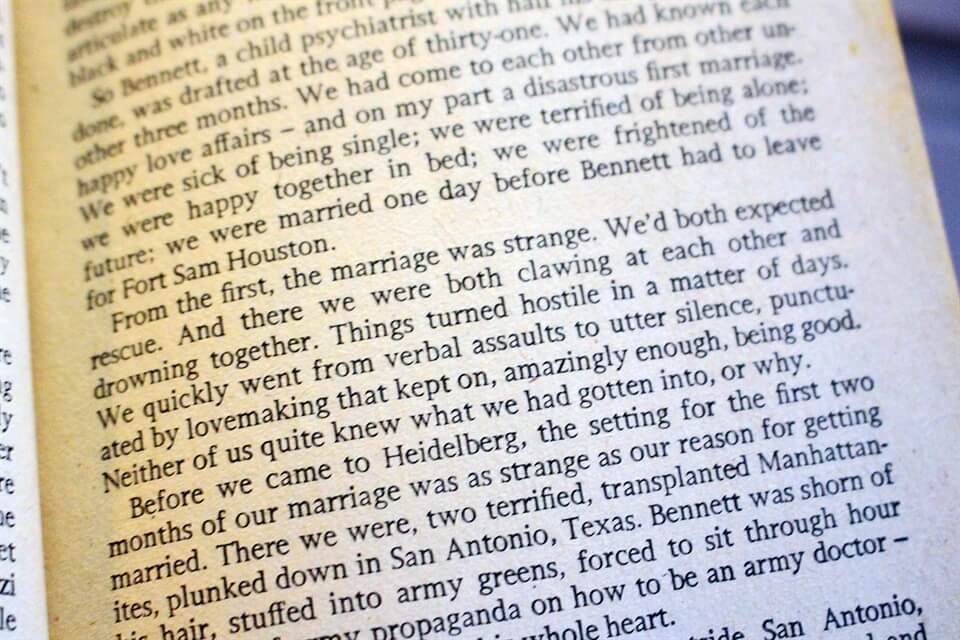
If this book made me gasp in 2015, imagine what it did in 1973 when it was first published. I believe in some way it's essential, uncomfortable reading for all women, if only to make yourself feel better about how few neuroses you have compared to Isadora Wing. Here's my review from April (what a good month that was!):
"If I had to recommend one book from this month's list, it would be this one. Although originally published in 1973, referred to as a predecessor for the likes of Sex and the City and quoted from innumerable times over the years, I still found this novel refreshingly original and it certainly managed to make my eyes pop on occasion with its language, description and frankness about a woman's relationship with sex, men and herself. Of course, the main character is neurotic, self-obsessed and her own worst nightmare in many ways, but that has never stopped me enjoying a novel that explores issues that aren't explored enough in literature, in my opinion; equality in relationships, the concept of fidelity, and the female enjoyment of sex."
Most arousing(ish): Little Birds by Anais Nin
This is not the first collection of erotic fiction by Anais Nin that people refer to. That instead would be Delta of Venus, which I read the month before I read Little Birds. Much to my surprise I found myself warming more to this book. It's not exactly that it was more erotic or arousing, I just found the stories more varied, more original and at times, more uncomfortable. I'm very much okay with books making me feel uncomfortable. Here's my original review from April.
"I reviewed one collection of Nin's erotic stories last month and I followed it up with this one, partly because it was recommended to me and the title got the better of me. Interestingly enough, it is in the opening story of this name that Nin really shows how good she was at writing a short story - full of sex or not. While other reviewers on Amazon and Goodreads claim that Delta of Venus is better, I actually found Little Birds to be a rounder, more complete and varied collection of stories. Still too many mentions of pert breasts though..."
Most surprising: The Prime of Miss Jean Brodie by Muriel Spark
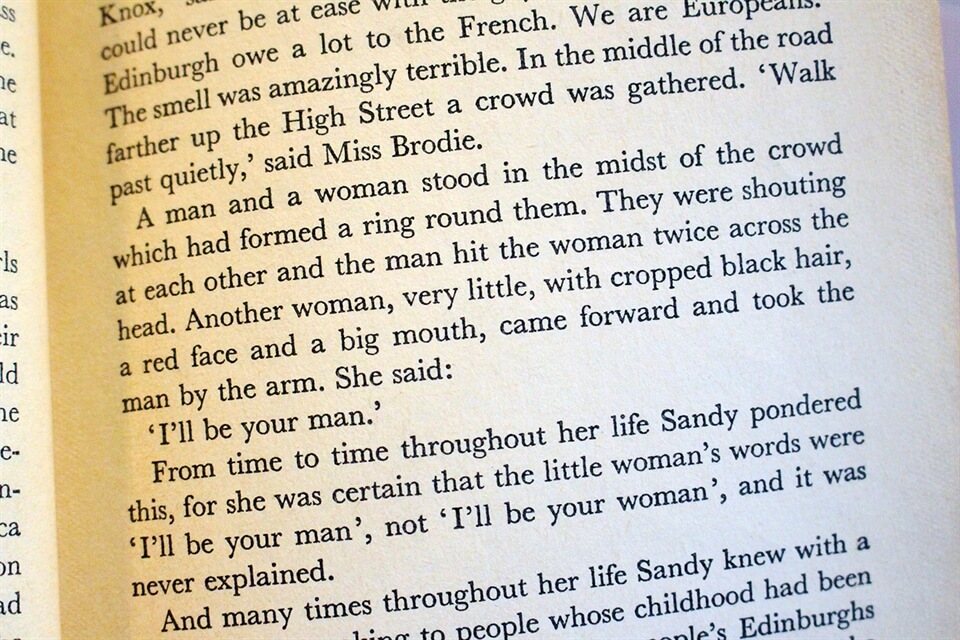
I don't know why exactly this book surprised me so much. Perhaps because I'd seen photos of the author looking small and sheepish and a little stern. I suspected her work must echo that, even though I'd read and enjoyed another of her novels some time ago. Well, this book certainly didn't on any level and it was quite innovative in how it unfolded. After finishing it I read a few articles about Ms Spark and saw that my original opinion was utterly wrong. Thank goodness. Here's my review from February:
"Why I didn't read this years ago after I enjoyed The Girls of Slender Means so much, I'll never know. It's possible I liked this one more. It felt more sophisticated with its time straddling narrative and unapologetically subtle spoilers that actually didn't spoil anything just made me catch my breath - no bad thing! While on the face of it, this is a novel about a group of girls who come of age under the unconventional guidance of their free spirit teacher Miss Brodie, there are many more layers to the characters involved. Through Spark's slick prose I began to see the so-called "Brodie set" less as the innocent sheep who follow their teacher around and I certainly found Miss Brodie more flawed and frayed than the confident and aberrant free spirit she begins the story as. I love novels that do that."
Most shocking: First Love, Last Rites by Ian McEwan
I still find myself thinking about this collection of stories, most often when I'm thinking about my own works in progress and the internal conversation goes a little bit like this;
"But you can't do that, Frankie. That would make people think you were totally weird and a little sick in the head?"
"Yes, but.... First Love, Last Rites."
"Oh yes, that was utterly shocking and revolting and brilliant. Okay, let's work on this a bit more...."
Here's the review from November:
"If Alice Munro is a woolly jumper, this collection of short stories was a rubber bondage suit. Arguably the darkest and most disturbing collection of fiction I've ever read, each story shocked me - some in a mouth-falling-open way, others in a take-a-deep-breath-then-move on way - but I'd be lying if I said I didn't enjoy something in each one. In fact, I think one of the stories, Last Day of Summer - as sombre as the others - is possibly one of my favourite short stories ever. The only "problem" is you have to read through fiction featuring incest, murder and child abuse to get to it. But again, there was still merit in each of these stories.
As a writer, this book reminded me to "think outside the box" and to not ignore the more bizarre, more sinister and more unexpected themes I want to write about and to dig into them. Life is not always lived in a comfortable woollen jumper and I would feel less of a writer if I didn't acknowledge and explore that in my own work."
Most Raw: After Birth by Elisa Albert
When I think back to the months that followed Baby Bird's birth, it's hard to make out distinct shapes or colours or sound. Everything looks blurry and a little grey and the noises I recall are all a bit warped, as if they're being played backwards. But I remember very clearly the hours I spent reading this book in September; often in the middle of the night in between feeds as I was too wired to sleep. I remember how much it spoke to me, and now I can see how important and helpful reading it was at that blurry, confusing time. Here's why:
"I read a review of this novel while I was still pregnant and was equally as intrigued as I was scared to read it. Considering its main theme is post-natal depression and the ups and downs of the first year of motherhood, it was a big risk reading this less than two months after giving birth. However, it paid off as I devoured this book, picking it up at any possible moment I could. Yes, it's a little abstract in places. Yes, it gets angry and is more than a little bit "ranty", but all of this was strangely therapeutic. I nodded along with the main character's struggle as much as I shook my head at parts of her experience that I simply couldn't understand no matter how hard I tried, but still I was fascinated by these seeming absurdities. This book was not easy reading, but it was compelling reading and that is a combination I will always, always treasure in good fiction."
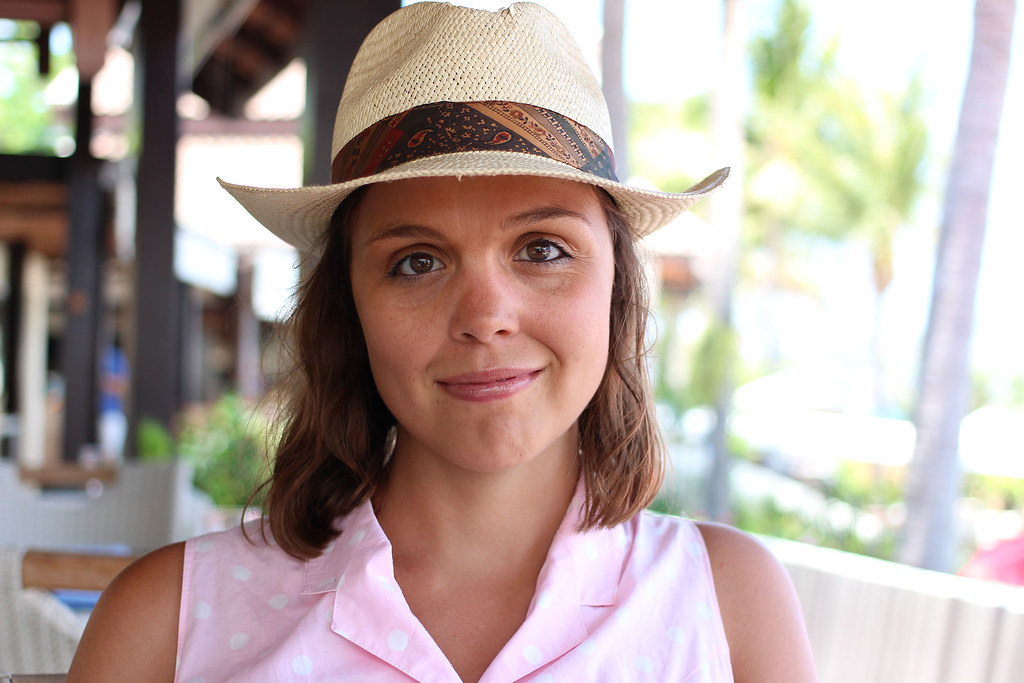
Frances M. Thompson
Find Frankie on Facebook, Twitter, Instagram, Pinterest, and Google+.
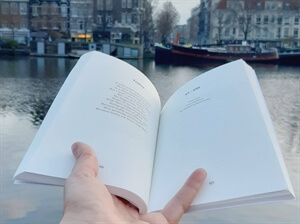 Books I Love: Five Books That Changed My Life in 2020
Books I Love: Five Books That Changed My Life in 2020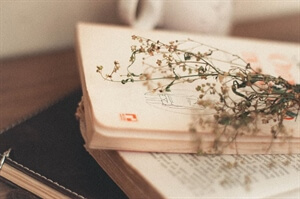 Books I Love: Five Poetry Collections You Should Read
Books I Love: Five Poetry Collections You Should Read Books I Love: Five Kids Books That Make Us All Happy
Books I Love: Five Kids Books That Make Us All Happy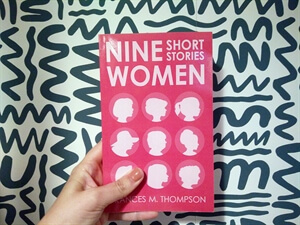 All writers and readers want for Christmas...
All writers and readers want for Christmas...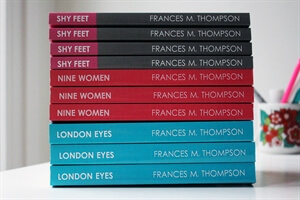 Give the gift of reading at Christmas - Signed copies available!
Give the gift of reading at Christmas - Signed copies available! About the Blog & Frankie
About the Blog & Frankie Welcome to My Amsterdam Travel Blog!
Welcome to My Amsterdam Travel Blog! Welcome to My Luxury Family Travel Blog!
Welcome to My Luxury Family Travel Blog! Welcome to My Writing Blog!
Welcome to My Writing Blog! Lover Mother Other: Poems - Out Now!
Lover Mother Other: Poems - Out Now! I Write Stories That Move You
I Write Stories That Move You Order WriteNOW Cards - Affirmation Cards for Writers
Order WriteNOW Cards - Affirmation Cards for Writers Work With Me
Work With Me